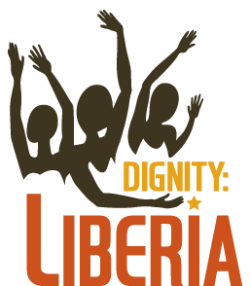We drove onto the Rehab Center compound in two different vehicles on the morning of September 3rd. I was in the lead vehicle and was overwhelmed with emotion at the joyous greeting we received. Women and girls - fistula survivors - came running from their dorm rooms and greeted us with hugs and smiles. Some of our team had been there in March, so were familiar faces, but all of us received an enthusiastic welcome. Next, Sao, one of the teachers, joined us playing a saa saa (a musical gourd). The girls began singing and dancing. I was laughing with joy and soon clapping my hands to the music.
We then unloaded boxes of supplies and took them to the Palava Hut where Sao and an assistant meticulously inventoried every item received. The boxes contained a number of items for the various trades taught at Rehab (pastry making, embroidering, tailoring, soap making, and cosmetology). The trade each survivor learns will enable her to earn a living once she graduates and leaves the Rehabilitation Center. We also provided toiletries and boxes of Depends that the matron, Leemue, had requested. (Some of the girls are still leaking and will require additional surgery. These lined panties allow them freedom to move about confidently.) For months Dignity:Liberia had collected these supplies in anticipation of this trip. Donors included friends, fellow church members, and even strangers – all answering a call to help. It was gratifying to witness these supplies reach the intended recipients and to know they will improve the quality of their lives.
We spent two and a half days at Rehab. Much time was spent engaging in various crafts with the fistula survivors and getting to know them. They looked at pictures stored on our phones and enjoyed hearing about our lives in the United States. One girl taught me how to say hello in Kpelle: “Ya-tuah!”
On the second morning, I interviewed 12 fistula survivors, whose stories will be posted on our web site. During the interviews, I finally fully grasped the depth of pain and despair these women and girls have experienced. They all spoke of the shame they felt from being constantly wet. They spoke of being shunned by friends and family. They have lived in isolation for years, and could no longer go about in society. No wonder they welcomed us with such joy! We see them as the beautiful human beings that they are. They are no longer untouchable.


 RSS Feed
RSS Feed